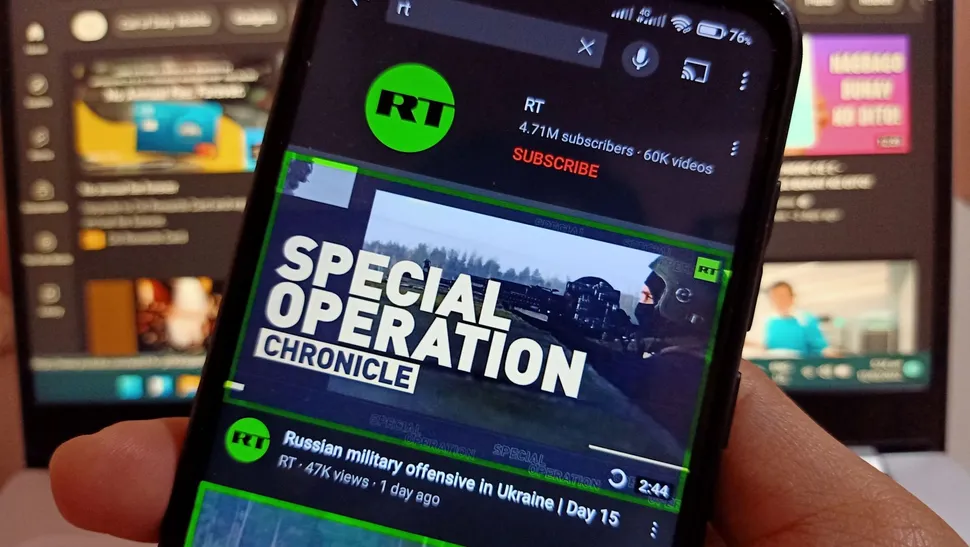What you need to know
- YouTube is blocking access to Russian state media channels across the world.
- The Google-owned platform cited its existing policy that prohibits content "trivializing" violent events.
- RT and Sputnik, two of Russia's state-funded media, were banned by the service in Europe more than a week ago.
YouTube is taking an even stronger stance against Russia's state-funded media after blocking access to RT and Sputnik's channels in Europe. The service is now extending that restriction globally.
The Google-owned platform announced today that it's swinging the ban hammer on Russian state media's YouTube channels, effective immediately. This means RT and Sputnik's channels won't be accessible to YouTube's more than 2 billion users worldwide.
The service cited its longstanding policies against violence as the basis for that decision.
"Our Community Guidelines prohibit content denying, minimizing or trivializing well-documented violent events," YouTube said in a tweet. "We are now removing content about Russia’s invasion in Ukraine that violates this policy."
YouTube is also taking down videos about Russia’s invasion of Ukraine that violate that policy.
"Since our last update, our teams have now removed more than 1,000 channels and over 15,000 videos for violating not only our hate speech policy, but also our policies around misinformation, graphic content and more," the service said.
While the ban takes effect immediately, YouTube noted that it may take time before everyone loses access to those media outlets.
The latest development is only a part of Google's broader effort to sanction Russia in the wake of the Ukraine war. It has also paused all forms of content monetization, including ads, in the country.
Most recently, Google suspended Play Store payments for users in Russia, preventing them from purchasing apps and games or making subscription payments. The search giant also banned Russia's state media from the Google News app or from the Google Play Store in Europe.
YouTube joins other tech giants that have stepped up restrictions against Russia, including Facebook's parent firm Meta and Twitter.
Source: androidcentral
